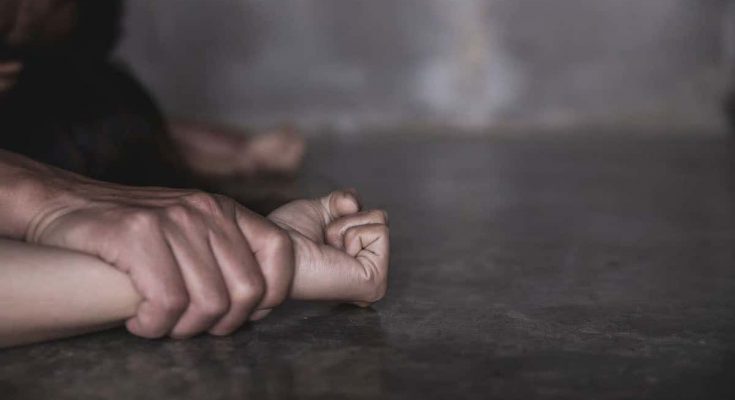By Ogunsesan Nafisat
(Court!! My Lord, the case before the court is between Mr. Dapo and Miss Ijeoma with case number SHC/UY/41B/20)
(After thirty (30) minutes recess) Justice Tope asked, having heard from the counsels, the claimant, Miss Ijeoma, what she has to say. Ijeoma began, ‘It happened five months ago when Mr. Dapo told me he was coming to see me about our assignment. When he entered my room, he gripped me forcefully, threw me down and had sex with me. (She weeps)That was the most horrible incident of my life. To him, that was his revenge for slapping him in public. When I told him I would report him, he laughed it over a cup of water as he said ‘as if anyone will believe you’ while my parents, whom I confided in, told me to keep quiet to save my honour. I couldn’t hide my disappointment and anger. I had to get justice. This is not entirely about me. It is about numerous rape victims who bury their strength and endure the pain. For us, I fight this cause’.
(After a long sigh) Do you have anything to say in defense, Mr. Dapo, Justice Tope asked. ‘Yes, my Lord,’ Mr. Dapo replied. ‘Girls are the architects of their misfortune. How else should we explain the indecent dressings girls put on? That day, she wore a mini skirt to class. Since she wanted to seduce the guys, I helped her by pulling down the skirt so she will feel embarrassed. What right does she then have to slap me when I did nothing but helped her? I just had to show her her place, my Lord’.
(While some laughed, others expressed their disgust. The clerk called the courtroom to order.)
‘Hmm, our society has truly deteriorated,’ Justice Tope began. ‘Rape culture has now become the new-normal. We live in a society where rape is prevalent and rape culture is normalized and excused by the media. This case brings to memory the article I read weeks ago titled: ‘Ending the rape culture: a social role or an administrative responsibility?’ More than just passing judgment on the accused today, I will educate us on rape culture and that will be my Obiter Dictum. Rape culture is characterized by misogynistic language, objectification of women’s bodies and glamorization of sexual violence by the media. This is evident in blaming women for getting rape, pressure on women to pacify and accept rape, assuming men and married persons don’t get rape and teaching women to avoid getting rape rather than teaching men not to rape women.’
Statements like ‘why was she also wearing short skirt?’, ‘girls with their indecent dressings’, ‘how can a husband rape his wife?’, ‘boys will always be boys’ and many unaffectionate comments are targeted towards rape victims. Definitely, rape culture is a construct of our society. Gender discrimination, societal perception and media representation have contributed to the prevalence of rape culture. Many rape victims are stigmatised while their perpetrators are exonerated.
According to the United Nations, thirty five percent (35%) of women have experienced sexual harassment in their lifetime, less than forty percent (40%) of victims seek help and less than ten percent (10%) seek help from law. Most especially, the law has placed a huge burden of proof on rape victims. That’s why rape perpetrators are often unpunished because victims couldn’t prove their case to the court’s satisfaction. Hence, the urgent need to put a stop to the menace speaks volume.
Therefore, ending rape culture requires structural, cultural and individual factors. It is about the choices that exist within relationship dynamics, cultural beliefs and in our societal structure. It is not just about administrative responsibility which is the accountability of those who act on behalf of the people. It also concerns social roles which are the parts people play as members of social groups.
As regards cultural factor, our orientation must change. We have to recognise that women are not subordinate to men. Rape should be seen plainly as a capital offence and not an instrument men use to exert dominance. The society must also stop victimising rape victims. Rather, they should provide justice for them. Most importantly, men and married persons can also get raped. Let’s all stop the discrimination and the gender stereotype. With that, everybody will realise the need to respect consent before having sexual intercourse rather than propagating rape culture.
Furthermore, movements like #MeToo, #TimesUp, #BalanceTonPorc and #EndRape and organizations like StandtoEndRape and VirginiaSexualandDomesticViolenceActionAlliance should be established to create awareness and curb rape in societies. Also, we need more than the Administration of Criminal Justice Act, Penal Code, ViolenceAgainst Persons Prohibition Act and other laws enacted to combat rape. We need enforceability. The law should make it easier for rape victims to prosecute perpetrators and justice must be served. Social institutions like schools, religious bodies and the media have a serious role to play. It is high time the media stopped glamorizing women’s nakedness and focus on exposing rape cases in ensuring justice is served. Religious institutions should preach good values and ensure their followers practisewhat are preached while educational institutions should include sex education in their curriculum and teach them to students as well.
So, to definitely end rape culture, it requires all of us to take actions and not only the administration. (After the counsel to the defendant gave his allocutus, Justice Tope delivers her judgment) Miss Ijeoma, thank you for taking the bold step. You have exposed the ills of rape culture. You have also shown that the society is ready for change by not keeping mute. To Mr. Bayo, indecent dressings do not justify rape and it is such a shame that an educated man like you could act in an uncivilised manner. With that, I sentence you to five years imprisonment and a fine of Five Million Naira only (#5,000,000). I rise.
(Court!,the clerk orders. Everyone leaves the courtroom.)



